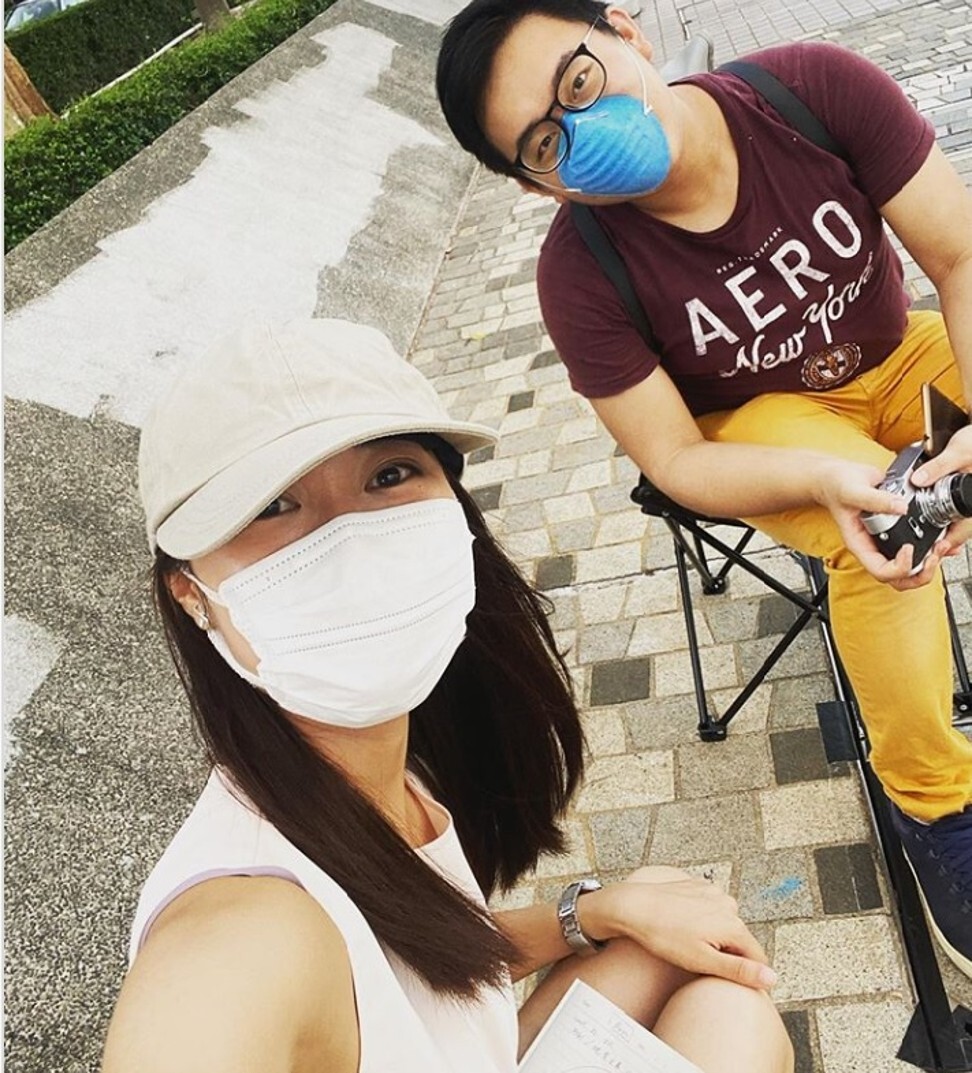
Amid national security law fears, Hong Kong’s Free Conversations have only just begun
- Local volunteer invites Hongkongers to sit down, have a chat about whatever is important to them and – if they agree – share their stories on social media
- Project’s founder hopes it can help keep city’s freedom of expression alive
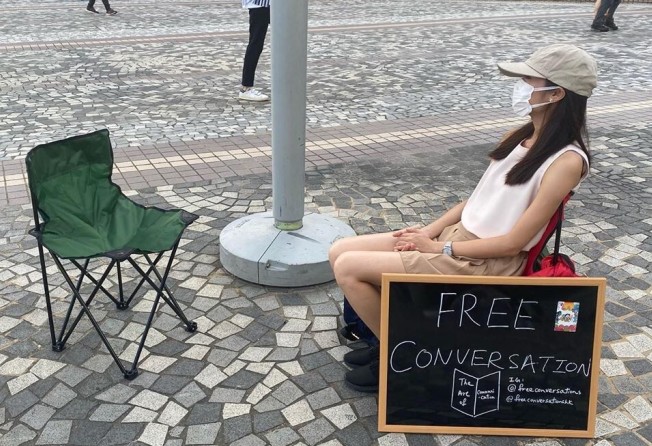
When Vivian came across the Free Conversations movement in Barcelona earlier this year, she started thinking about how to bring it to Hong Kong.
The city she calls home had been engulfed by months of anti-government demonstrations, several clashes between protesters and the police, and thousands of arrests.
“The year-long anti-extradition law [movement] has got me rethinking the art of communication,” says Vivian, a 24-year-old teacher, referring to the now withdrawn piece of legislation that sparked the protests.
“Many Hong Kong people are exposed to polarised ideas through social media and we gradually only accept the news that we want to read. Many families have serious conflicts as they hold different political views. However, is censorship the answer? No,” says Vivian, who did not want to share her real name.
The concept of Free Conversations is simple: two chairs folded in a public area, a blackboard, a notepad and time to talk. Vivian announces the locations on Instagram. Anyone can approach her for a chat and then, if they consent, she will share some of the stories on social media.

Vivian met the founder of the movement Adrià Ballester, who is based in Barcelona, in May, and the first Free Conversations in Hong Kong took place late last month, just a few days before the national security law was introduced to the city. Vivian says this was a coincidence.
“But if you really want me to answer, why now, I would say that there are lots of broken souls in Hong Kong after an entire year of political struggles. We need someone to step in and heal one another,” she says.
“It’s of utmost importance to remind Hong Kong people that freedom of expression is being protected under our Basic Law [the city’s mini-constitution]. This is our culture,” Vivian says. She says it is also important to remind Beijing that Hong Kong is supposed to be governed under the “one country, two systems” principle that was put in place when Britain returned the city to Chinese rule in 1997. Under the agreement, Hong Kong is granted a high degree of autonomy.
“Within the Chinese state, Hong Kong is a special Chinese city where we have the system of accepting diverse points of view. Freedom and diversity represent Hong Kong,” Vivian says.
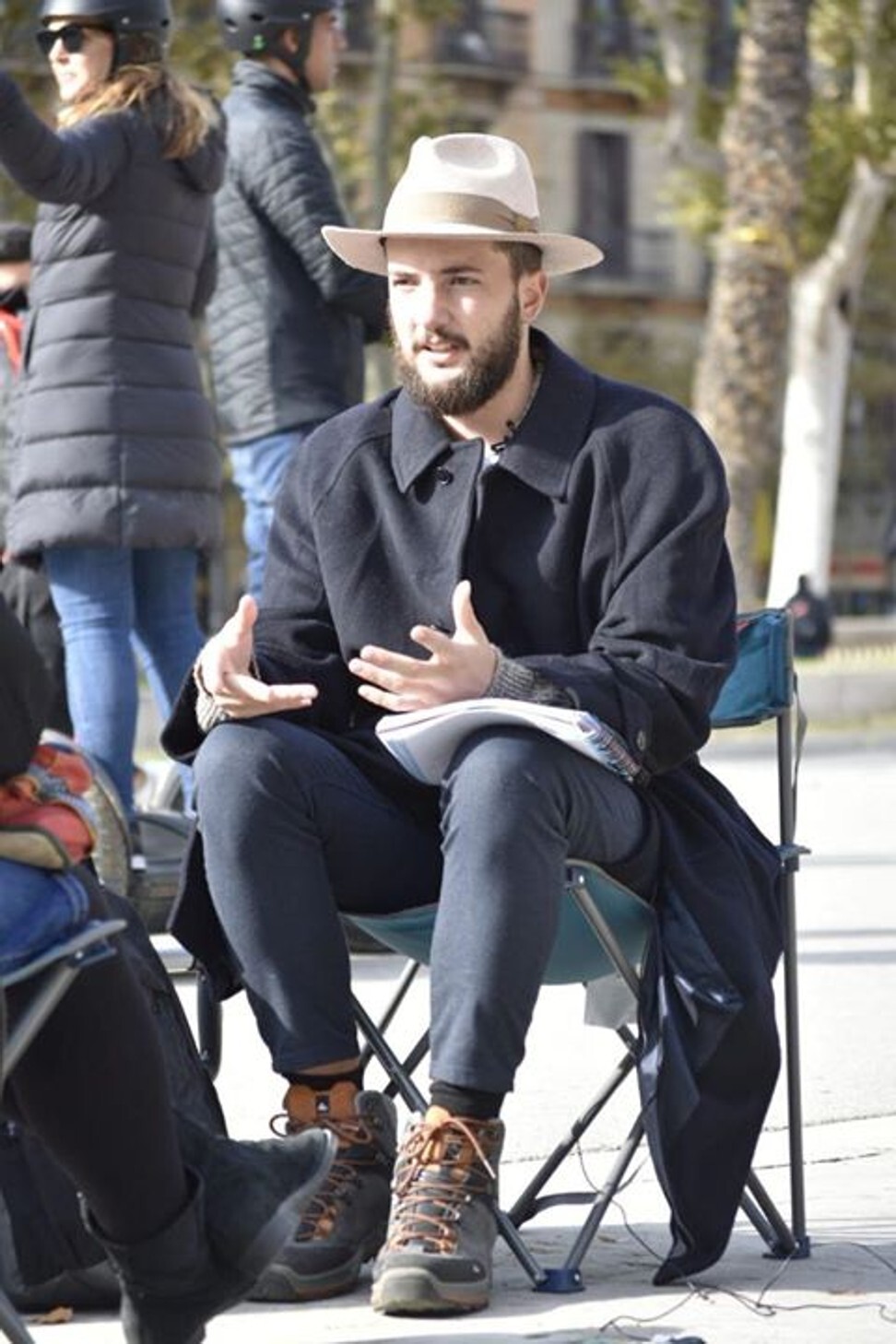
The national security law, which came into effect late on June 30, has sparked widespread concern over the city’s freedoms. The law targets secession, subversion, terrorism and collusion with a foreign power. Punishments for each are up to life in prison.
In a video message to the Human Rights Council of the United Nations released on June 30, the day the legislation was approved by Beijing, the city’s chief executive Carrie Lam Cheng Yuet-ngor said it would target only a small minority of people, while the basic rights and freedoms of most Hong Kong residents would be protected.
Businesses started removing pro-democracy decorations, while some Twitter users cancelled their accounts and others rushed to delete electronic messages as well as group chats.

02:19
Hong Kong national security law leaves ‘Lennon Walls’ in restaurants blank, protest posters out
Since the law was introduced, several books have been withdrawn from public libraries and the Education Secretary Kevin Yeung Yun-hung has said that activities expressing political stances should not be held in schools, including playing and singing the protest song Glory to Hong Kong.
Even among legal experts, there is confusion about how the new law will be interpreted or applied.
Vivian says there has been a lack of dialogue between the government and the residents regarding the implementation of the law. She also fears for her own safety. “The national security law only gives citizens more fear and uncertainties on what actions are regarded as breaking the law and how the legal proceeding works.”
Vivian wants to create a safe space where people can share their opinions on a wide variety of subjects.
“I hope to publish humanistic Instagram stories that attract people from different political views and promote the idea of seeking to listen and understand one another,” she says.
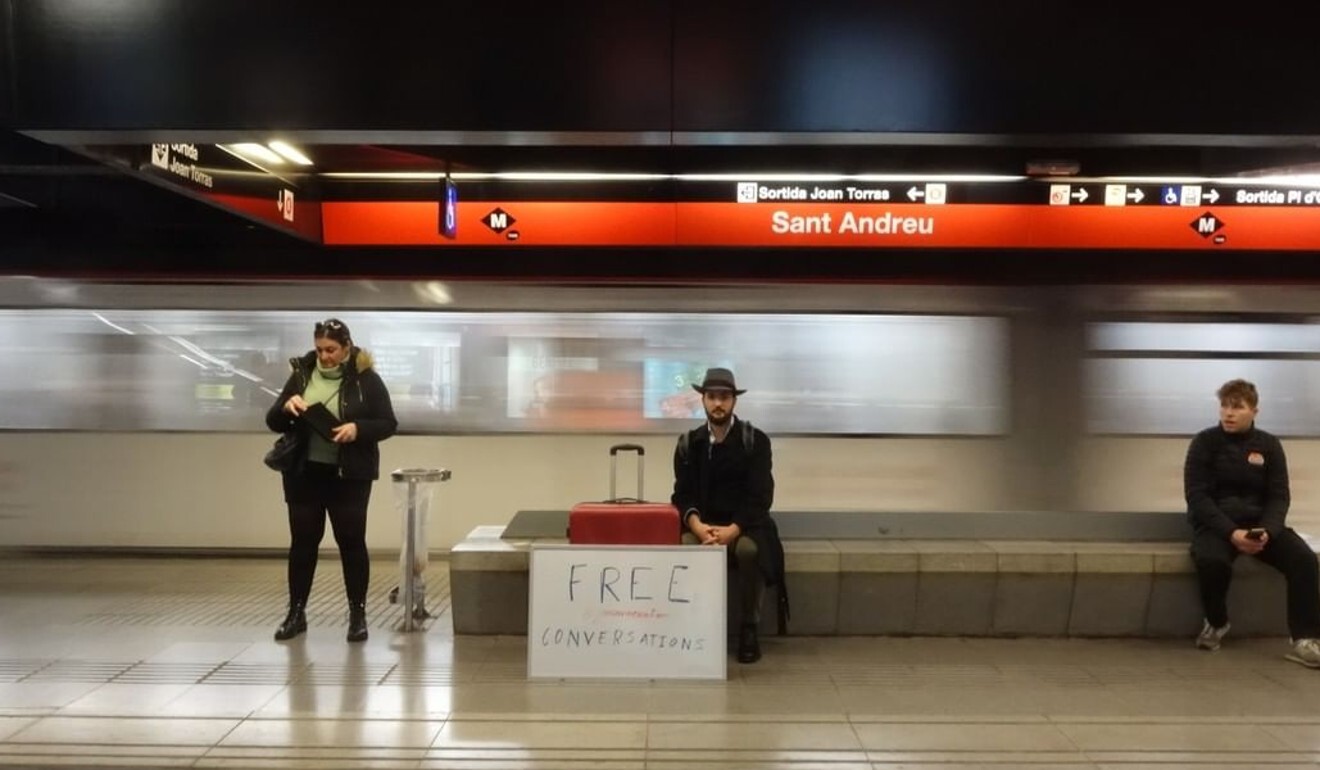
In Barcelona, Ballester says he decided to create the Free Conversations project back in 2017, after a long conversation with a stranger that he met during a walk while he was having a bad day.
“I left [that chat] with a very different feeling, thinking about how important it is for us to talk to each other. Regardless of whether we know each other or not, I realised that the important thing is to talk,” he says.
Since then Ballester has offered Free Conversations sessions in Barcelona once a week. He expects the project to reach other cities, such as Quito in Ecuador and Lisbon in Portugal.
“The Free Conversations is a movement that aims to promote freedom of speech and we do so by providing spaces in different cities where people can freely express themselves without being judged.”
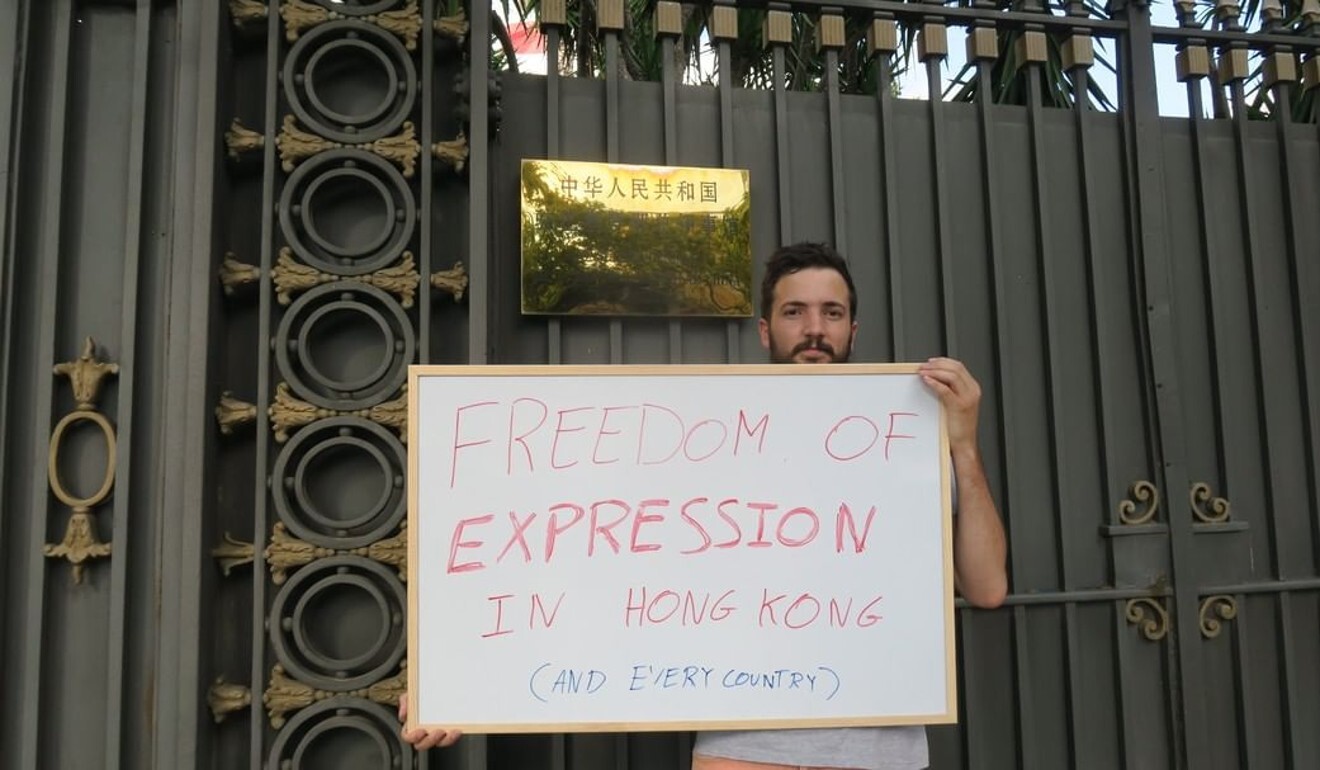
Ballester hopes his project can bring people together.
“Hong Kong is [a place] where freedom of expression is in danger, especially now since the security law was approved,” he says. “So I hope the Free Conversations movement will contribute to keeping the communicative spirit of its citizens.”
Ballester protested in front of the consulate general of China in Barcelona on Monday afternoon, holding a white board that called for freedom of expression in Hong Kong.
There is the risk that “little by little people [in Hong Kong] will slowly lose the freedom to talk to each other,” he says. “I think now [the Free Conversations movement] is more important than ever.”